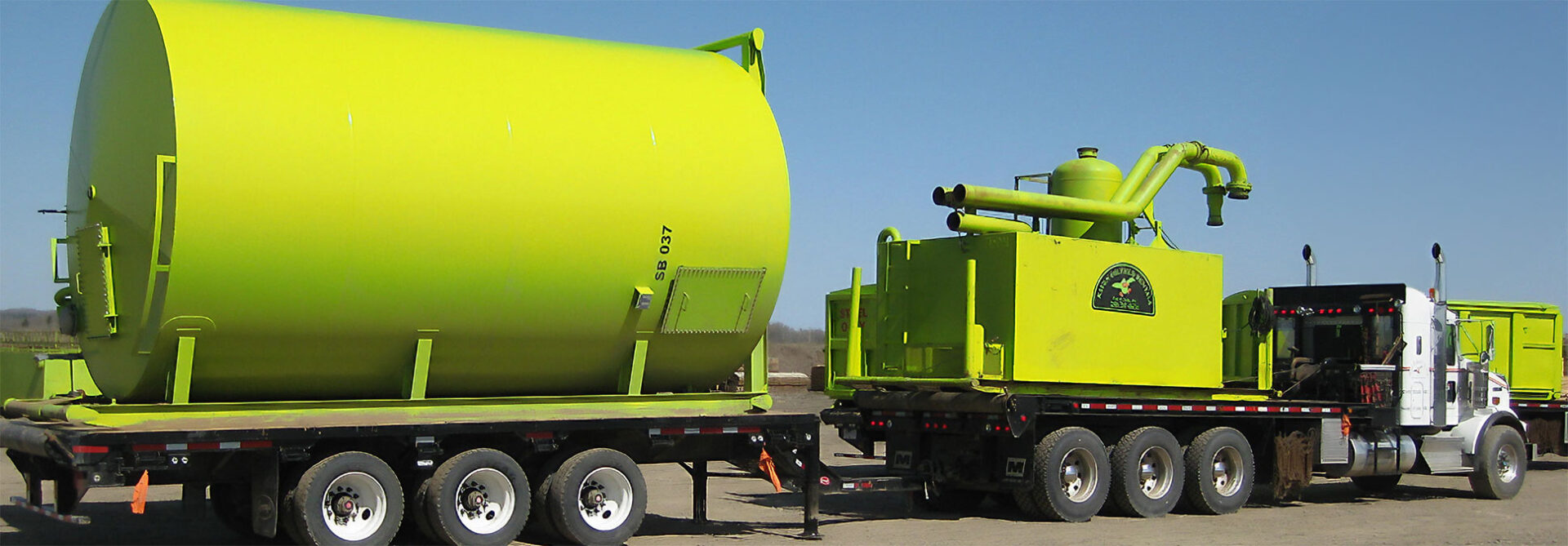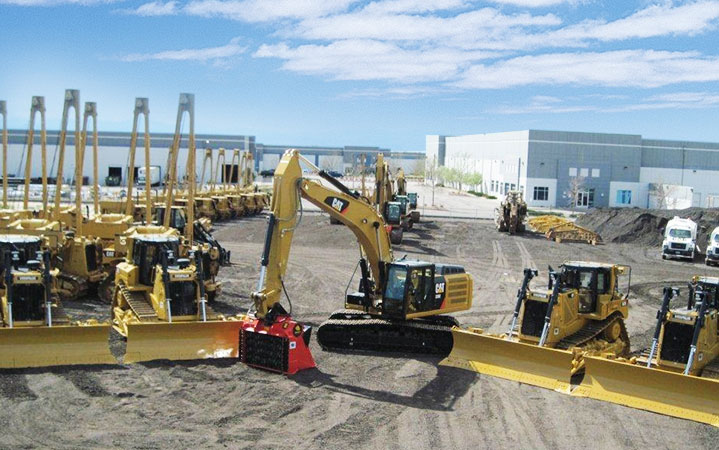Superior Oilfield Rentals Texas: equipment portfolio explained
A Comprehensive Overview to the Numerous Sorts Of Oil Field Equipment and Pipeline Equipment Available
The oil and gas industry depends greatly on specific tools for reliable removal and transport. Numerous kinds of machinery, from drilling rigs to storage space containers, play important duties in this complex procedure. Each tool serves distinct features that add to total functional success. Recognizing these elements is vital for any person involved in the sector. As the sector advances, so also do the innovations that support it. What improvements are on the horizon?

Drilling Rigs: The Backbone of Oil Expedition
Drilling rigs work as the necessary machinery in the domain name of oil expedition, allowing companies to access hydrocarbon books hidden deep beneath the Planet's surface. These rigs are available in various types, consisting of land rigs, offshore rigs, and mobile systems, each made to operate in details environments. Furnished with innovative technology, piercing rigs can pass through geological developments with precision, making certain efficient resource removal. The structural stability and functional capabilities of these rigs are important, as they should stand up to severe problems and significant stress. The option of a boring gear affects the overall project cost and timeline, making it an important consideration for oil companies seeking to enhance their exploration efforts and maximize productivity in their procedures.
Pumps: Crucial for Liquid Motion
In the oil extraction process, the role of pumps is substantial, promoting the movement of fluids throughout different stages of production. Pumps are vital for carrying petroleum, water, and other fluids from underground reservoirs to the surface and after that with pipelines to refineries. They come in various kinds, consisting of centrifugal, positive variation, and completely submersible pumps, each serving specific objectives based on the fluid characteristics and operational demands. Centrifugal pumps are commonly made use of for their performance in high-flow applications, while positive displacement pumps master dealing with thick liquids. The choice of pump influences total efficiency, functional safety, and maintenance costs. Correct choice and maintenance of pumps are essential for enhancing production and lessening downtime in oil field procedures.
Valves: Managing Circulation and Pressure

Valves play a vital function in taking care of the circulation and stress of fluids within oil areas and pipelines. Various types of shutoffs serve unique applications, each made to fulfill particular features basic for reliable procedure - Superior rentals squeeze tools. Comprehending the characteristics and uses of these shutoffs is important for enhancing system efficiency and safety
Sorts of Valves
Necessary parts in oil field procedures, shutoffs play a critical role in managing the circulation and stress of fluids within pipelines and equipment. Numerous kinds of shutoffs are utilized to fulfill the diverse demands of oil and gas manufacturing. Usual kinds consist of entrance valves, which offer a straight-line circulation and minimal stress decrease; globe shutoffs, recognized for their strangling abilities; and round shutoffs, acknowledged for their quick on/off control. In addition, check shutoffs protect against heartburn, while butterfly valves supply a light-weight service for controling circulation. Each shutoff type is designed with specific products and setups to hold up against the extreme conditions typically discovered in oil fields, making sure dependability and efficiency in operations. Recognizing these kinds is crucial for efficient system management.
Valve Applications and Features
While various sorts of valves serve unique purposes, their key applications focus on regulating flow and pressure within oil and gas systems. Shutoffs such as gate, world, and ball valves manage liquid movement, making sure peak performance and safety and security. Entrance shutoffs are frequently utilized for on/off control, providing marginal flow resistance. World valves, on the other hand, deal accurate circulation policy, making them appropriate for throttling applications. Round valves are favored for their fast operation and tight sealing capacities. Additionally, pressure safety valve are important for avoiding system overpressure, guarding equipment honesty. Overall, the suitable choice and application of shutoffs boost functional efficiency, making sure the reliable transportation of oil and gas via pipelines and handling facilities.
Compressors: Enhancing Gas Transport
Compressors play an important function in the effective transportation of gas, ensuring that it moves smoothly through pipelines over long distances. These gadgets raise the stress of gas, permitting it to overcome friction and altitude changes within the pipeline system. Additionally, compressors assist in the harmonizing of supply and need, accommodating variations in consumption and production prices. Numerous sorts of compressors are utilized in the sector, consisting of centrifugal, reciprocating, and rotating screw compressors, each offering unique benefits based upon the operational requirements. Routine maintenance of these compressors is vital to make the most of effectiveness and minimize downtime, ultimately adding to a trusted gas transport network. Their important feature emphasizes the significance of compressors in the general oil and gas facilities.
Storage Tanks: Safe and Reliable Liquid Administration
Reliable transport of all-natural gas relies upon different sustaining systems, among which is the correct monitoring of tank. These containers play an important role in safely including liquids, guaranteeing that operational efficiency is maintained while minimizing ecological dangers. Created from durable products, they are developed to withstand high stress and corrosive elements. Correctly sized and tactically situated, storage containers help with the smooth circulation of gas and other liquids, avoiding traffic jams in supply chains. Routine maintenance and monitoring are critical to discover leaks or architectural problems, advertising security and conformity with regulative standards. Ultimately, the effective management of storage space containers is important for the overall integrity and dependability of the oil and gas sector's liquid handling systems.
Pipeline Systems: Facilities for Transport
Pipeline systems act as the foundation of the oil and gas industry, assisting in the reliable transport of hydrocarbons over huge ranges. These systems contain various elements, including pipelines, shutoffs, pumps, and compressors, all diligently developed to guarantee smooth circulation. The products made use of in pipeline building and construction, frequently steel or high-density polyethylene, are chosen for toughness and resistance to deterioration. Pipeline networks can cover throughout land and water, attaching production sites to refineries and distribution. In addition, advanced innovation makes it possible for real-time surveillance of flow rates and stress degrees, boosting functional effectiveness. The critical positioning of these pipes reduces environmental impact while taking full advantage of resource availability, therefore playing a vital duty in meeting power demands internationally.
Safety And Security Equipment: Making Sure Employee and Environmental Security
The operation of pipeline systems, while important for power transport, likewise presents significant safety challenges for employees and the environment. Safety tools plays a substantial function in mitigating these threats. Individual protective equipment (PPE) such as headgears, gloves, and non-slip shoes safeguards workers from physical risks. Additionally, gas discovery systems keep track of for leakages, making sure that damaging substances do not present a risk to personnel or the surrounding environment. Emergency closure systems are vital for quickly halting procedures during a situation, avoiding potential calamities. Spill control materials, including absorbents and obstacles, are essential for minimizing ecological effect. Overall, purchasing all-inclusive security tools is essential for preserving operational honesty and safeguarding both employees and the atmosphere in the oil and gas industry.

Often Asked Questions
How Do I Choose the Right Oil Field Equipment for My Task?
Picking the best oil area equipment includes assessing task requirements, spending plan constraints, and functional requirements. Take into consideration variables such as devices reliability, compatibility with existing systems, and the supplier's online reputation to assure peak performance and safety.
What Are the Upkeep Demands for Oil Field Equipment?
Upkeep needs for oil area devices include routine examinations, lubrication, and timely fixings. Operators must also follow maker guidelines, screen performance metrics, and assurance compliance with security regulations to boost longevity and more info performance.

How Can I Make Sure Compliance With Environmental Rules?
To guarantee compliance with ecological regulations, business must carry out normal audits, implement finest techniques, buy training, maintain proper documentation, and remain upgraded on regulations (Superior Rentals near me). Partnership with environmental firms can additionally improve adherence to policies
What Is the Average Life-span of Pipeline Equipment?
The typical life expectancy of pipeline equipment typically ranges from 20 to 50 years, relying on aspects such as worldly quality, environmental problems, and upkeep methods. Routine examinations can greatly influence longevity and operational efficiency.
How Do I Safely Carry Oil Field Equipment to Remote Locations?
Moving oil field equipment to remote locations requires cautious planning, consisting of course assessment, securing permits, using appropriate vehicles, and guaranteeing security procedures are complied with. Correct training and interaction amongst teams are crucial for effective transport.